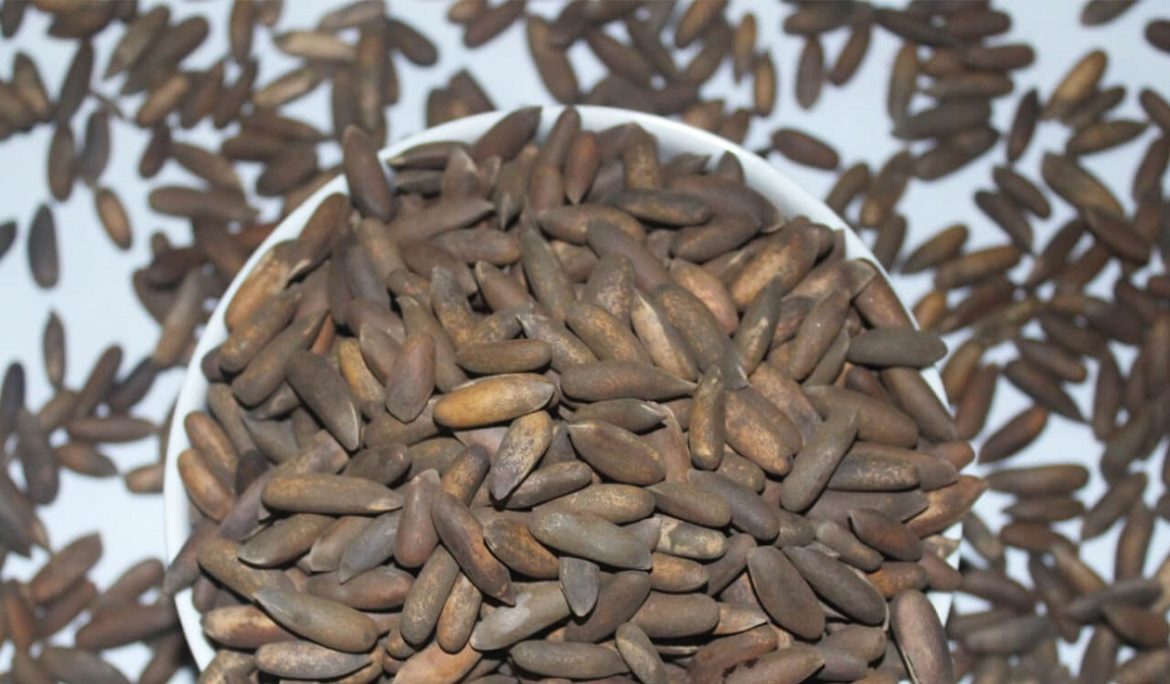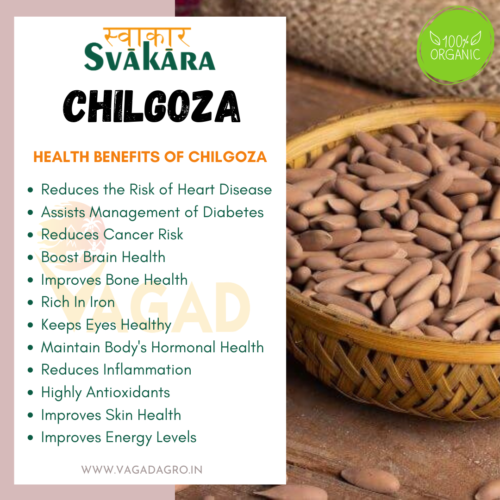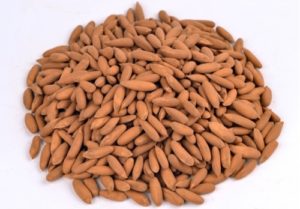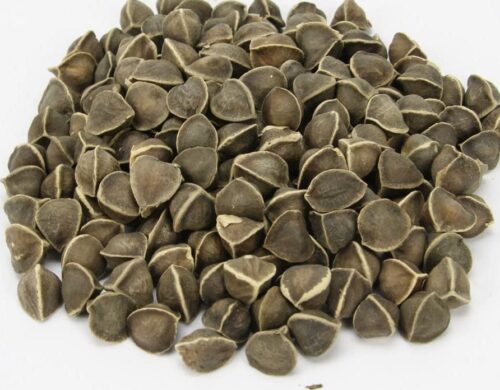
Chilgoza is used as a dry fruit. It is a nutritious and delicious fruit as well as a medicine. Chilgoza oil is also used as a medicine. Chilgoza trees are about 24 meters high, and 3 meters wide, and are medium size. The bark of the tree is thin, smooth, rough, and brown in color. Its leaves are three tufted and hard.
The fruits of chilgoza are 2.5 cm long, flat, and brown in color. The kernel of the fruit is white, sweet. The Chilgoza tree has flowers, and fruits, from February to December. Chilgoza seeds fall down from the trees. These seeds are sold in the market.

Reduces the Risk of Heart Disease
Chilgoza contains pinolenic acid, which helps to support healthy cholesterol, including decreasing the level of bad cholesterol in the blood. Which leads to the reduction of heart diseases.
Assists Management of Diabetes
Chilgoza assists with the management of diabetes consuming enough chilgoza every day has been shown to improve glucose control and reduce bad cholesterol levels. Furthermore, chilgoza and other tree nuts benefit both glucose control and blood lipids.
Reduces Cancer Risk
Chilgoza consumption reducing cancer risk. One particular study revealed that decreasing serum magnesium by 100 milligrams per day resulted in increased pancreatic cancer risk by 24%. Blood magnesium levels should, therefore, be increased to reduce cancer risk

Boost Brain Health
It is definitely a great reason to incorporate more chilgoza into your diet immediately. A dietary intake of magnesium, which is also prevalent in chilgoza, was shown as part of the research performed to assist in improvements in adolescents with depression and anxiety disorders.
Improves Bone Health
Chilgoza is a rich source of vitamin K, which is required for strengthening bones. Vitamin K is necessary to regulate where your calcium deposits are used in your body and therefore increases bone mineral density and reduce fracture rates.
Rich In Iron
The wealth of nutrients in chilgoza also includes essential vitamins B1, B2, C and minerals potassium, magnesium, phosphorus, and a moderate amount of iron, calcium, zinc, and manganese.
Keeps Eyes Healthy
The consumption of chilgoza also aids in improving eyesight. The protection of eyes against macular degeneration and glaucoma results as a direct benefit due to the consumption of pine nuts.
Maintain Body’s Hormonal Health
Chilgoza helps maintains your body’s hormonal health as they are rich in zinc. Zinc aids in healing and stimulates the activity of about 100 enzymes in the body. They are a rich source of magnesium too. Magnesium is also known as the ‘Mood Mineral’. It helps to decrease anxiety, stress, and depression.
Reduces Inflammation
The strong antioxidant properties in chilgoza nuts are beneficial in scavenging free radical damage of cells and combat oxidative stress. In addition, chilgoza nuts help in lowering inflammation triggers immunity and prevent the onset of chronic diseases.
Highly Antioxidants
Chilgoza comes with a myriad of potent antioxidants which include gallocatechin, catechin, lutein, lycopene, carotenoids, and tocopherols. The strong antioxidant properties in chilgoza nuts are beneficial in scavenging free radical damage of cells and combat oxidative stress.
Improves Skin Health
The Chilgoza pine nut is a rich source of vitamin E and has 9.33 mg per 100 grams. Vitamin E is also known as alpha-tocopherol, and this is useful in keeping skin moisture. Vitamin E is needed by men to produce healthy and motile sperms for impregnation.
Increase Energy
Chilgoza contains high levels of magnesium which is known to increase oxygen uptake and burn more calories, in turn, energy levels are increased. People underestimate the important role of magnesium in that it transports oxygen throughout the cells of the human body.
Kalpesh Pathak
Related Posts

Top 50 super healthy foods by categories
Maintaining a healthy diet is crucial for achieving good health and proper nutrition, as it helps prevent numerous chronic noncommunicable...

8 Health Benefits of Moringa Seed
Moringa or Sahajan is a very important and famous plant. Its scientific name is Moringa oleifera. This plant has been used in the most...
